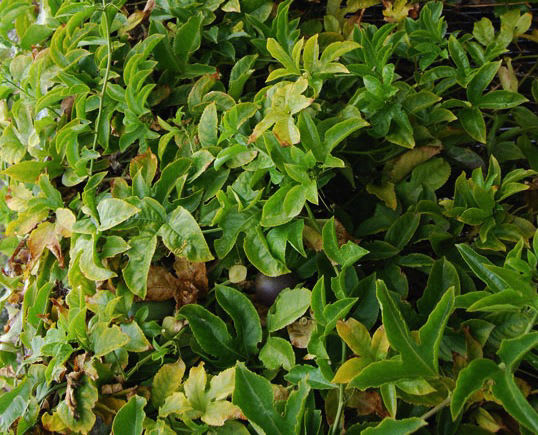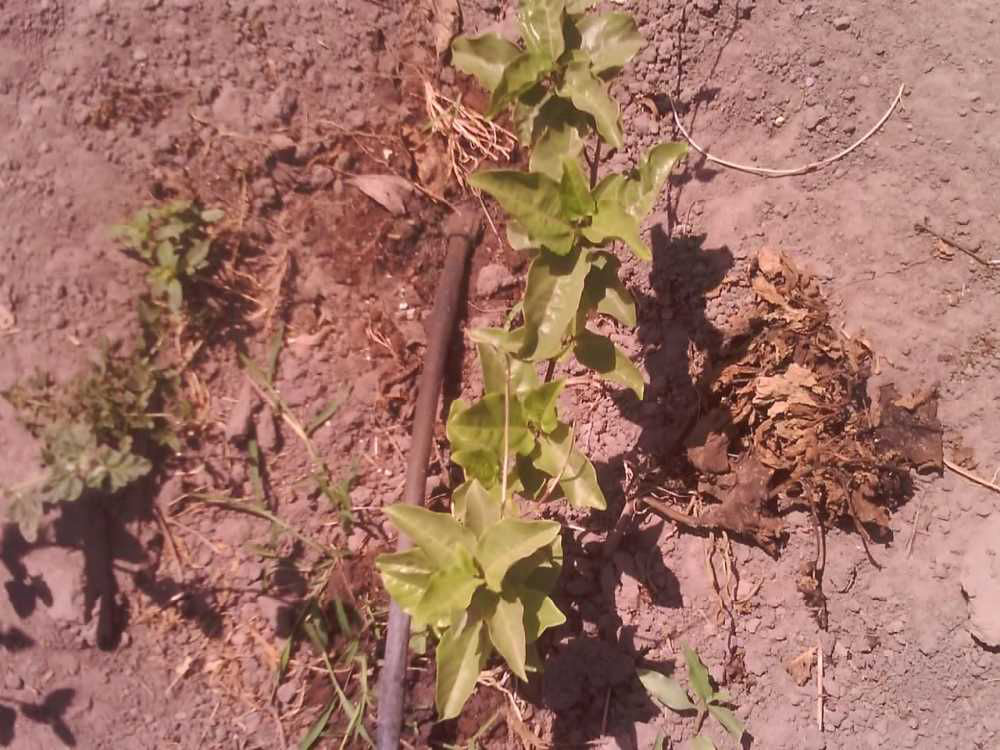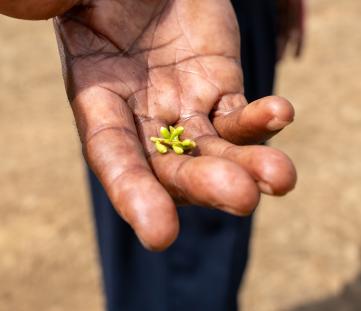ID: JVE-MGV
ID: JVE-MGV
Passion Fruit
Passiflora edulis
Photo
Senegal
15:02 - 32°C
My connections
My ID card
Who am I?
Date of birth
02/07/2013
Name
Passion Fruit
Tree
Passion Fruit
Where am I located?
Country
Senegal
Place of birth
Diouloulou
Coordinates
13° 3′ 15.32″ N
16° 35′ 43.46″ W
/-16.595405,13.054255,0/500x333@2x?access_token=pk.eyJ1IjoidG9tbWFzb3NwZXJvbmkiLCJhIjoiY2tnOTE3eW12MDJqazMybXNzOWV1YjloOSJ9.wtGsuDU7XIKjcv2cq8CiXw&logo=false&attribution=false)
My Timeline
The important moments in your tree's life.
Seed
It all starts with a tiny seed, nice and warm in the soil.
Nursery
Your seedling is big enough to be welcomed into one of our nurseries, along with many others.
Planted
We’re here! Your tree has reached its new home: it’s been planted by a smallholder, who’ll take care of it for years to come.
Photo
Strike a pose! Now that it’s big enough, here’s a photo of your tree!
My Gallery
Nursery

Planted
/-16.595405,13.054255,0/500x333@2x?access_token=pk.eyJ1IjoidG9tbWFzb3NwZXJvbmkiLCJhIjoiY2tnOTE3eW12MDJqazMybXNzOWV1YjloOSJ9.wtGsuDU7XIKjcv2cq8CiXw&logo=false&attribution=false)
16° 35′ 43.46″ W
Photo

Curiosity about me
The important moments in your tree's life.
Let's start with introductions
The passion fruit comes from South America and is appreciated for the soft pulp of its fruit. Today it’s cultivated in diverse tropical and subtropical regions throughout the world. The fruit is a type of berry, varies in color from purple to yellow, and contains numerous seeds immersed in a gelatinous yellow mass. It’s planted especially for the delicious, tropical juice that it yields.
Meaning
Relief
Passion fruit has an acidic taste that gives a feeling of freshness when eaten. Not only that, but as the fruit is also rich in potassium, it is recommended that you eat it during the warmer months for rehydration. In other words, it is a fruit that provides relief on all levels!

How much CO2 I’ll absorb
My estimated CO2 absorption capacity is based on the first 10 years of my life*
Current absorption
- 50 kg
2013
0 kg
2023
-50 kg
* The tree will continue to absorb CO2 even after the tenth year. Therefore this is a prudent estimate.
How I am useful to local communities

Consumption and sales
Its fruits, seeds and/or leaves are used as food in the farmers' families or are sold on local markets.

Medicine
Its leaves, roots, bark and/or fruits are used in traditional medicine.

Cosmetics
Raw materials are extracted from its flowers, fruits and/or leaves to produce creams or powders.
My benefits
80%
Food Security
The trees will bear fruits, some that will be edible immediately and others that can become edible through processing, ensuring food resources over time.
70%
Economic development
The trees' fruits and the products derived from their transformation can be traded in local networks, offering income opportunities.
20%
CO₂ Absorption
During its life cycle, each tree will offset CO₂. The trees that you plant can offset your emissions.
30%
Environmental protection
The trees are planted in agroforestry systems that favor the virtuous interaction between the different species and their positive impact on the environment and on the land.